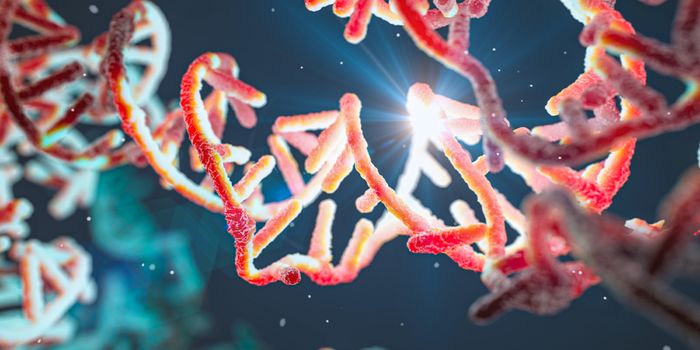Genetics May Help Us Learn Who is at Risk From a Folate Deficiency
Folate is necessary for a healthy pregnancy; low folate levels can lead to problems called neural tube defects. A lack of folate during pregnancy, a nutrient also known as vitamin B9, can cause lifelong health problems in the child. Certain genetic variants may make the risks posed by low folate even more significant. Some of these variants are found in a gene that encodes for an enzyme called MTHFR (5,10-methylenetetrahydrofolate reductase), which produces a variety of molecules by modifying others. When a person carries mutations in both copies of the gene MTHFR, it may raise their folate requirement. The research has been reported in the American Journal of Human Genetics.
"The benefit of recognizing MTHFR deficiency early is that you can start preventative therapy, including a high folate diet, very early in life and prevent or reduce the most severe effects," said senior study author Fritz Roth, a professor of molecular genetics in the Donnelly Centre for Cellular and Biomolecular Research.
Changes in the sequence of the MTHFR gene can have a variety of impacts, and researchers are likely only aware of some variants that cause severe impairments in the function of the enzyme. They may also me modified based on how much folate a person typically gets in their diet. If scientists can find more variants in MTHFR that have an impact on health, it may be possible to help people that carry certain ones avoid the negative consequences. Roth's team aimed to learn more.
With a technique called deep mutational scanning, the researchers could look at the impact of changes in any of the 656 amino acids that comprise the enzyme.
"The point of this work is to be ready and know the damaging variants ahead of time instead of waiting for the variant to be identified in a patient and then do experiments on it," added Roth. "We want to be ready when a new one comes along."
The researchers also tested variants in a yeast model; the yeast lacked their own MTHFR gene, which was substituted with one the scientists provided. The MTHFR variants were rated either functional or non-functional based on whether or not the yeast cell with the variant lived or not.
Mutations that eliminated MTHFR function were more rare, some just made it less efficient. A MTHFR mutation called A222V (alanine is changed to a valine at position 222) is common in people, and has been studied extensively. It's been suggested that this mutation can lead to the buildup of homocysteine, and high levels of homocysteine have been associated with miscarriage and other problems of pregnancy. What is less clear is whether women that carry MTHFR variants are at higher risk of these conditions. Research has also not conclusively shown that folate supplements can reduce high homocysteine levels, although it does seem to do so in people homozygous for A222V.
The study authors have suggested, however, that we still have a lot to learn about other variants in the MTHFR gene, and how they are impacted by the A222V variant.
"A variant could have one effect in the normal reference human background but have a stronger effect together with this common A222V variant and we wanted to investigate that," Roth explained.
This work suggested that MTHFR variants are indeed influenced by the A222V variant. The ultimate impact on the function of the enzyme is still not known, however. "....a major point of our paper is that A222V also changes the impact of other variants," said Roth.
It does seem that decades after the sequencing of the human genome, we are finally starting to learn how variations in genes can change our biology. "MTHFR is just the beginning. Having an atlas of maps for other disease-related genes could help us better interpret individual genomes and allow earlier diagnosis and prevention when we see a concerning variants."
Sources: AAAS/Eurekalert! via University of Toronto, American Journal of Human Genetics









